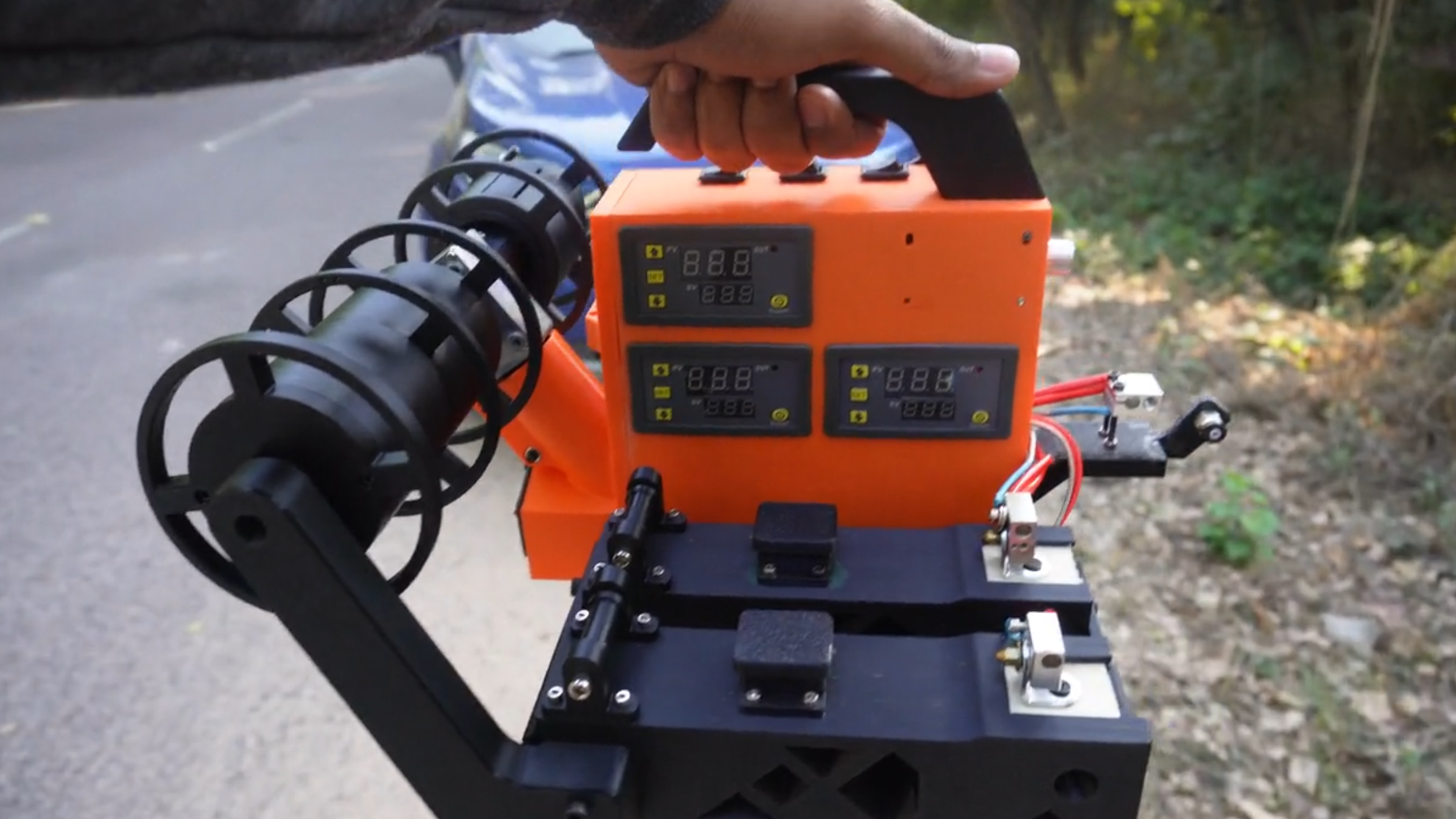
On December 27, Creative3DP launched a Kickstarter campaign for PETFusion 2.0 — and within three hours, the device was fully funded. PETFusion 2.0 is both a PET (polyethylene terephthalate) bottle recycler and a custom 3D printing filament maker, with the ability to even apply your own ink/pigments to the filaments you make, allowing you to create a wide spectrum of 3D printing materials, should you please.
Compared to the original PETFusion, the biggest improvement is likely the included PET bottle cutter, powered by the same single motor that handles everything else but is helpfully included with the unit. Optionally, users can also opt for an additional separate AeroDry unit which stores and keeps dry up to three 1kg filament spools at once.
Other improvements include the addition of separate cutting and pulling stations, dual hotends for producing two strands of filament simultaneously, filament welding to allow dual strands to be made into one, and improved filament colorizing that uses a cotton pad with your choice of ink to color your filaments as they are made.
According to Creative3DP's official approximations, a 1-liter PET bottle produces up to 15 grams, or 7 meters, of filament. Meanwhile, a 2-liter PET bottle can net as much as 30 grams (or 15 meters) of filament. Of course, both of these estimates can vary depending on the exact thickness of the bottle in question — with the low ranges for 1 liter being considered 5 meters and 2 liter being 10 meters.
In any case, it would seem that all you need to make the best filaments for your 3D printing needs is here, albeit after some assembly time and recycling work. While the project is being Kickstarted, backers are receiving STL files for 3D printing most components, a commercial license, a list of the retail components that aren't 3D printable, email support, and a video assembly guide. The cost of non-printable components is estimated to be between $95 and $140 for most users, while backing to acquire STL files costs $39, with the charge increasing to $59 for adding AeroDry's STL files.
The overall package seems pretty reasonable, and like a truly fascinating way to stay eco-friendly while also enhancing 3D printing endeavors. Should you choose to support this Kickstarter, please understand you're making an investment and not directly purchasing a product. Backer rewards are expected to arrive sometime in February 2025.







